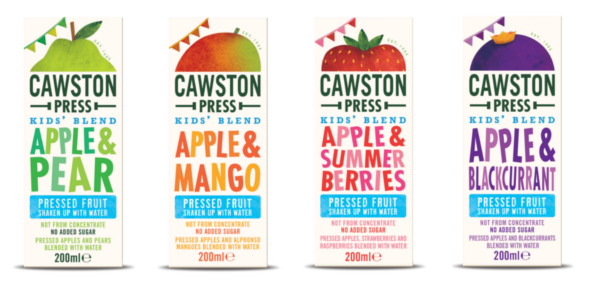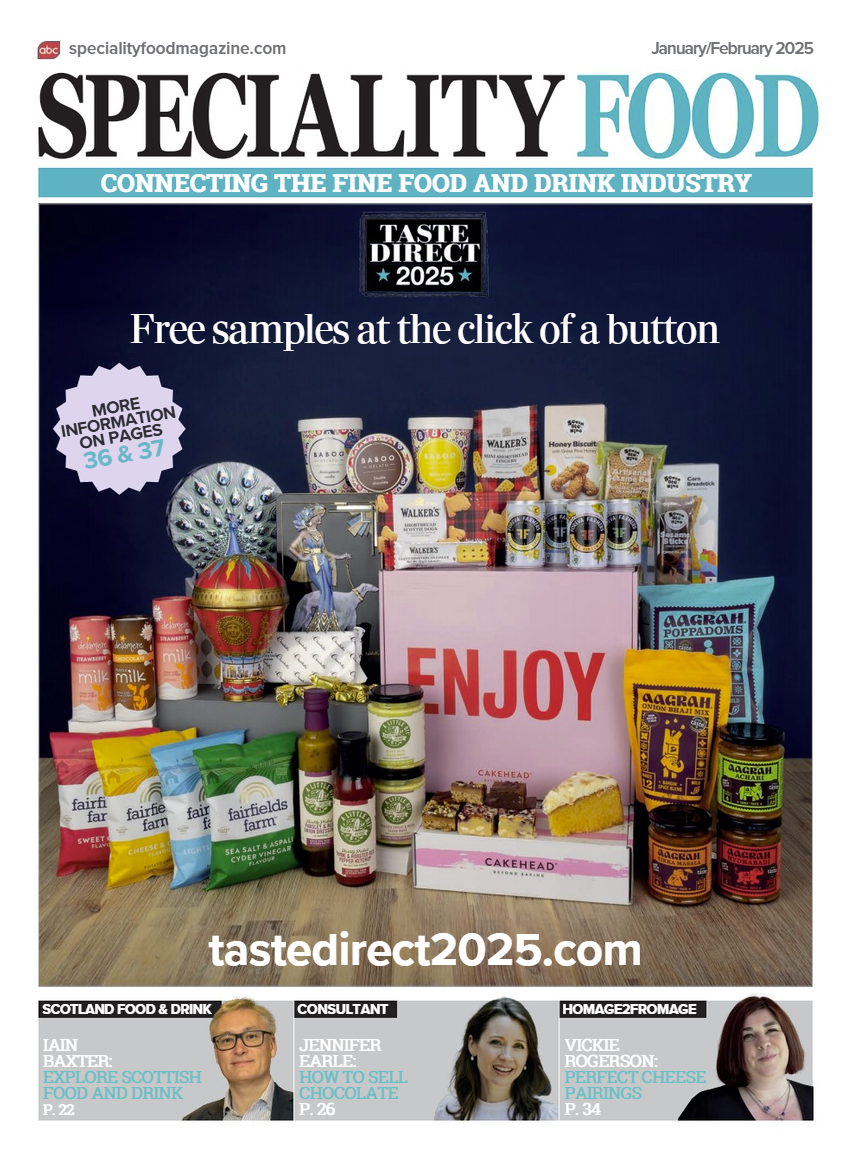
subscribe today
Subscribe to Speciality Food magazine today for just £19.99/year.
subscribe now
A combination of expertise and passion can be credited with the success of Cawston Press. Indeed, the juice and soft drink producer was born of the knowledge that managing director, Stephen Unwin gained while holding the same position at Suffolk-based juice producer Copella. Stephen explains, “When I was managing director of Copella in the nineties, Tropicana purchased the business but wasn’t sure what to do with its Cawston Vale – as it was then known – arm. This allowed me to acquire the brand myself, which I did in 2000.” Already well-established, Cawston Vale provided Stephen with an opportunity to experiment with production and packaging techniques. “It was first established in Norfolk in 1986 so already had quite a bit of heritage, and I saw a chance to grow the business by finding sectors that would respond well to pressed juices in a shelf-stable and canned format. Since then, we’ve moved into different pack formats and developed new ideas, including flavour combinations such as apple and ginger and apple and rhubarb.”
Unlike many other fruit juice producers, Cawston Press press fruit at its peak rather than relying on concentrated juices.
“When we started, we had some orange and grapefruit juices that were made from concentrate, but we phased them out over time and just focused on the pressed juice range. With my knowledge of growing apples, I was keen to find a way to produce a pressed apple juice of the very best quality which led me to follow a route where we press the fruit when it’s in season and at its best. We don’t store fruit for many months of the year, instead we utilise it when in season. This means that our British apples are being picked and pressed in October and November when they’re fresh from the tree, rather than storing the apples as other producers do.”

Picked and Pressed
The consumer desire for top quality juices is high on Cawston Vale’s agenda. Stephen says, “Consumers are looking for products that are as pure and natural as they can be, so we chose to pasteurise our juices to preserve them instead of using preservatives. We also sell our products in shelf-stable packaging. This makes them very different to chilled juices, which need to be kept at low temperatures to keep them stable and only have a limited life. By putting our juices in a long-life format we protect the quality – the product doesn’t deteriorate at all as it’s sealed in a protected pack, so it retains the same taste and freshness as when it was first produced.”
An interesting selection of blends is key to the Cawston Press blend, in line with the evolution of consumer taste.
“The days when you could choose from just orange or apple juices are passed – these days, lines like our apple and elderflower blend are very popular. Combinations add interest to the product offer. Another example of this is our sparkling range; for this we blend our pressed juices with water and add sparkle to make a lighter and more refreshing product. We’ve moved into what we see as premium soft drinks – there’s still a connection to the original juices and they’re still based on pressed fruit, but they’ve changed with the times.”
The producer’s innovative efforts to produce a top quality taste have not gone unnoticed, leading them to lay claim to a number of food industry accolades.
“We’re pleased to have won a number of Great Taste awards over the years, and our focus is always to ensure that our products offer a fantastic taste. I’ve always believed that you need to make a product people will want to buy again, which is always the objective of our taste panel. Although all of our products contain no additives, our newly-launched rhubarb sparking drink contains a small amount of sugar which makes it more delicious than it would be without, but this is at a much lower level than in other soft drinks.”
Sometimes taste is compromised so a product can boast a shorter list of ingredients, Stephen believes. “There are a lot of products which read very well on the label but don’t necessarily deliver on the taste, so people don’t necessarily want to buy it again. This is something we avoid by ensuring a good balance of flavour and quality.”

